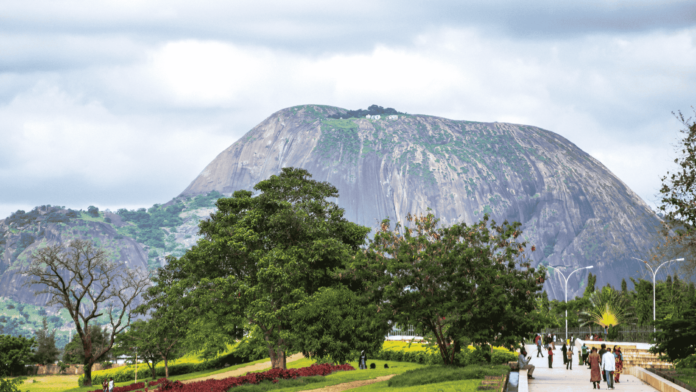Nigeria’s natural beauty is as diverse as its culture, offering countless opportunities for eco-tourism enthusiasts to connect with unspoiled landscapes and wildlife. From the lush rainforests and cascading waterfalls to serene beaches and protected wildlife reserves, the country is a treasure trove of ecological wonders waiting to be explored. Whether you’re seeking adventure or tranquility, Nigeria’s eco-tourism destinations promise unforgettable experiences for nature lovers. Here’s a guide to some of the best eco-tourism sites to add to your travel bucket list.
1. Obudu Mountain Resort (Cross River State)
Nestled in the highlands of Cross River State, Obudu Mountain Resort is a top destination for eco-tourism in Nigeria. Known for its cool climate, rolling hills, and lush greenery, the resort offers a tranquil escape from the bustling city life.
- Highlights:
- Cable car rides providing panoramic views of the mountains.
- Nature trails for hiking and birdwatching.
- Natural pools and a serene environment ideal for relaxation.
- Best time to visit: October to February, when the weather is cooler and visibility is excellent.
2. Yankari Game Reserve (Bauchi State)
As one of Nigeria’s most prominent wildlife parks, Yankari Game Reserve is a sanctuary for biodiversity and a prime destination for eco-tourism. It spans over 2,200 square kilometers of savannah and is home to various wildlife species.
- Highlights:
- Spot elephants, baboons, antelopes, and over 350 species of birds.
- Take a dip in the Wikki Warm Springs, a natural thermal pool with crystal-clear waters.
- Explore ancient caves with rock paintings and fascinating history.
- Best time to visit: November to May, during the dry season when wildlife sightings are more frequent.
3. Okomu National Park (Edo State)
Located in Edo State, Okomu National Park is a smaller yet significant rainforest reserve that offers a glimpse into Nigeria’s lush tropical ecosystems. It’s an excellent destination for eco-tourism enthusiasts looking to connect with nature.
- Highlights:
- Towering mahogany trees and a dense rainforest canopy.
- Home to endangered species like the white-throated monkey and forest elephants.
- Observation towers for wildlife spotting and panoramic views.
- Best time to visit: All year round, but drier months (December to February) are preferable for easier access.
4. Afi Mountain Wildlife Sanctuary (Cross River State)
The Afi Mountain Wildlife Sanctuary is a hidden gem in Cross River State, known for its conservation efforts to protect endangered primates and other wildlife species.
- Highlights:
- A chance to see gorillas, drill monkeys, and chimpanzees in their natural habitat.
- Canopy walks that offer stunning views of the rainforest.
- Proximity to the Drill Ranch, where rescued primates are rehabilitated.
- Best time to visit: December to March, during the dry season for easier navigation.
5. Ngwo Pine Forest (Enugu State)
Ngwo Pine Forest is a serene and picturesque destination in Enugu State, offering a unique eco-tourism experience with its towering pine trees and natural beauty.
- Highlights:
- Explore the serene forest trails perfect for hiking or picnics.
- Discover the Ngwo Cave and Waterfall tucked within the forest.
- Enjoy the peaceful ambiance and cool climate of the area.
- Best time to visit: Anytime, though the dry season ensures easier access to the caves and waterfalls.
6. Gashaka-Gumti National Park (Taraba/Adamawa States)
Gashaka-Gumti National Park is the largest national park in Nigeria, covering over 6,000 square kilometers of savannah, forest, and mountain terrain. It’s a haven for eco-tourism enthusiasts.
- Highlights:
- Diverse wildlife, including chimpanzees, leopards, and giant forest hogs.
- Stunning landscapes with waterfalls, rivers, and mountains.
- Opportunities for hiking, camping, and wildlife photography.
- Best time to visit: November to April, during the dry season for better wildlife visibility.
7. Erin-Ijesha Waterfalls (Osun State)
Also known as Olumirin Waterfalls, Erin-Ijesha Waterfalls is a stunning natural attraction in Osun State. The cascading water flows over seven levels, each offering unique views and experiences.
- Highlights:
- Hike through the lush forest to explore all seven levels of the waterfall.
- Enjoy the cooling effect of the cascading water.
- Experience the spiritual significance of the site for the local community.
- Best time to visit: During the rainy season (June to September) for a fuller waterfall experience.
8. Lekki Conservation Centre (Lagos State)
For eco-tourism within a bustling urban setting, the Lekki Conservation Centre in Lagos offers a tranquil escape into nature. It is a protected reserve that highlights Nigeria’s coastal ecosystems.
- Highlights:
- Walk along the longest canopy walkway in Africa for panoramic views.
- Spot monkeys, crocodiles, and exotic bird species.
- Explore the mangroves and wetlands via wooden walkways.
- Best time to visit: Dry season (November to March) for optimal exploration.
9. Idanre Hills (Ondo State)
Idanre Hills is a UNESCO World Heritage Site and one of Nigeria’s most breathtaking natural attractions. It’s a blend of cultural heritage and ecological beauty.
- Highlights:
- Hike the 660 steps to the top for panoramic views of the surrounding landscape.
- Discover ancient settlements, including shrines and palaces, on the hill.
- Enjoy the cool and serene environment perfect for eco-tourism.
- Best time to visit: All year round, but the dry season is preferable for hiking.
10. Cross River National Park (Cross River State)
Often called the jewel of Nigeria’s ecological treasures, Cross River National Park is a biodiversity hotspot and a must-visit for nature lovers.
- Highlights:
- Explore its two divisions: Oban and Okwangwo, each offering unique ecosystems.
- Spot rare species like the Cross River gorilla and forest elephants.
- Trek through dense rainforests and enjoy stunning waterfalls and rivers.
- Best time to visit: December to February for easier access and wildlife spotting.
Tips for Enjoying Eco-Tourism in Nigeria
- Plan Ahead: Research the site and its accessibility, especially during the rainy season when some roads may become impassable.
- Travel with a Guide: Local guides can enhance your experience with insights into the area’s ecology and culture.
- Dress Appropriately: Wear comfortable clothing, sturdy shoes, and carry insect repellent for forested areas.
- Respect Nature: Avoid littering and follow the site’s conservation rules to help preserve its natural beauty.
- Stay Hydrated: Carry enough water and snacks, especially for long hikes or remote locations.
Nigeria’s eco-tourism sites are a testament to the country’s natural beauty and environmental diversity. From tranquil waterfalls and dense rainforests to expansive savannahs and coastal reserves, these destinations offer something for every nature lover. Whether you’re seeking adventure, relaxation, or a deeper connection with the environment, Nigeria’s eco-tourism gems promise unforgettable experiences. So pack your bags, embrace the spirit of exploration, and let Nigeria’s natural wonders captivate your soul.




